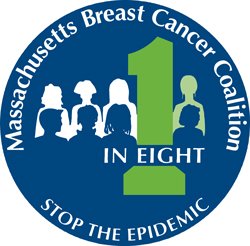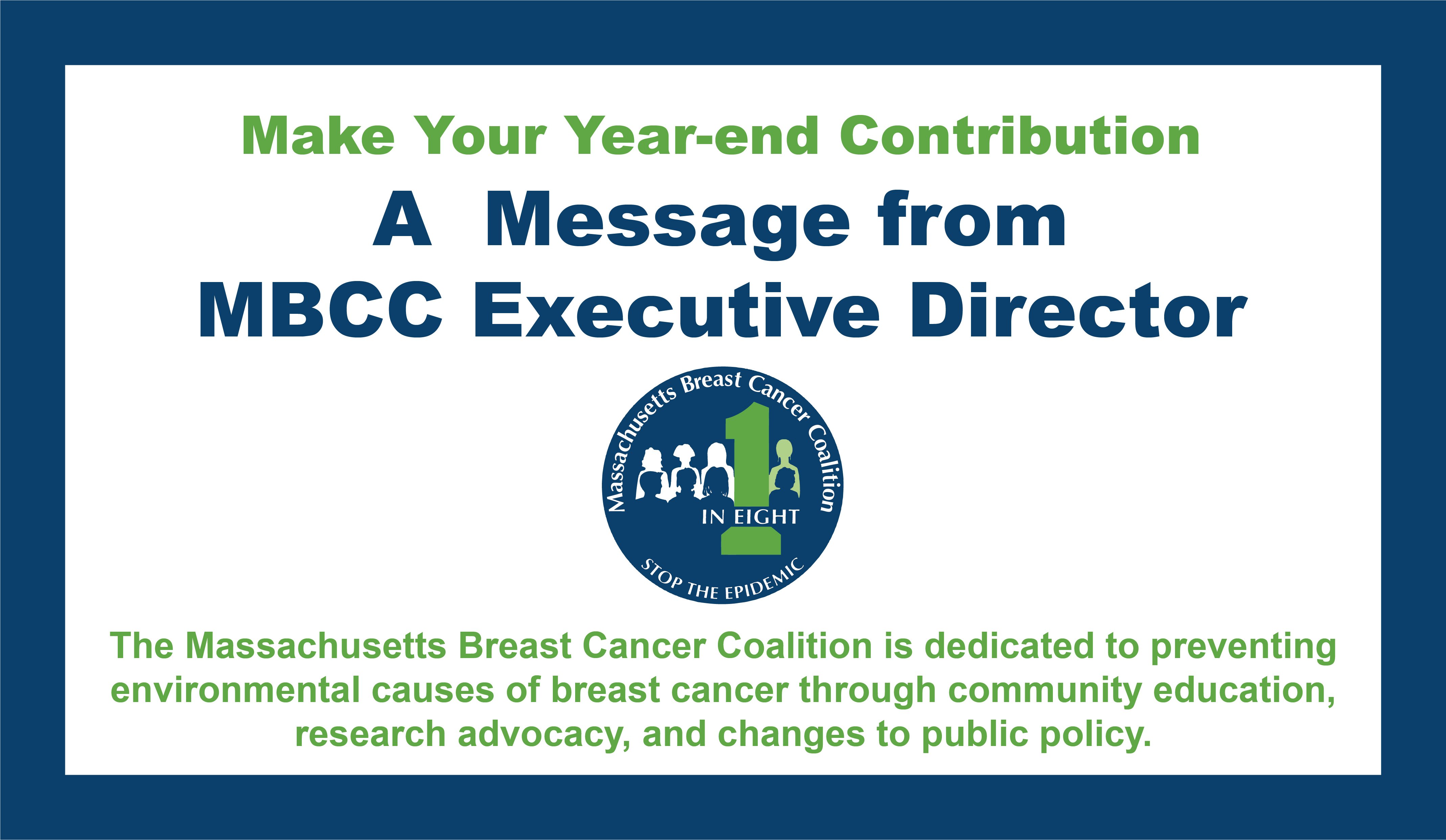I’m writing this letter to ask you to support the vital work Massachusetts Breast Cancer Coalition (MBCC) is doing to prevent breast cancer for future generations. Breast cancer is the most commonly diagnosed cancer in women – 1 in 8 will be diagnosed in their lifetime. Breast cancer is the second leading cause of cancer death among women, taking the lives of over 40,900 women in just this year alone. The statistics are alarming and the toll this disease is taking on families is just too high.
We are long overdue for a systematic change.
MBCC’s mission – to prevent the environmental causes of breast cancer through community education, research advocacy, and changes to public policy – has never been more urgently needed. As the only advocacy organization focused on breast cancer prevention, we are proud of our accomplishments over the past year:
- Our award-winning community education program, Let’s Talk Prevention (LTP): Reducing Toxic Exposures, was exhibited in 150 locations throughout Massachusetts and expanded into seven languages;
- We created a special hands-on version of LTP for high school students and presented it in classrooms from the Berkshires to Cape Cod. For this work, MBCC was recognized by the Toxics Use Reduction Institute as a “Champion of Toxic Reduction”;
- We brought life-saving health information from renowned scientists directly to citizens through expansion of the MBCC Webinar Series, including topics such as drinking water pollutants and cell phone risk;
- As part of a dynamic coalition, we met with the Commissioner of the Massachusetts Department of Environmental Protection to advocate for the establishment of stronger standards for common drinking water contamination;
- As a Community Partner of the STEEP Superfund Research Program, we worked with researchers from University of Rhode Island, Harvard T. H. Chan School of Public Health, and Silent Spring Institute to share information on exposures to PFASs, a class of toxic chemicals in drinking water and consumer products, through community events, the LTP tour, and the MBCC Webinar Series.
These and other initiatives are gaining momentum. In 2019, we will tailor LTP for middle school curriculums and lay the groundwork for working with elementary schools. MBCC plans to deepen our unique role as a bridge between the research and medical communities and the public as we embark on a five-year study with researchers from Silent Spring Institute, Northeastern University, and Michigan State University on PFAS-REACH (PFAS Research, Education, and Action for Community Health) to address the harmful effects of PFASs in children and support communities affected by contaminated drinking water. With increasing evidence that some water supplies contain dangerous levels of contaminants, MBCC will continue to press state legislators to support comprehensive drinking water and groundwater research and will urge them to adopt stricter drinking water and environmental standards for PFASs. We are determined to reach more residents with vital health information about how to reduce their exposure to toxic chemicals and make changes to protect themselves, their families, and their communities.
We cannot take on these initiatives without your help.
Your generous support makes our ongoing work possible and helps us to meet the growing demand for our programs and resources. A gift from you is a practical, immediate way of joining the fight for prevention.
If you have supported us in the past, please, won’t you consider increasing your gift?
If you are new to our work, will you please make a first-time contribution today?
Every tax-deductible dollar you contribute goes directly to MBCC’s efforts to make our environment safe and free from disease for ourselves, our families, and our communities. As I have often said, this is not a job for our children and grandchildren – this is our job. And, we need your help.
Our work is far from over. Please help ensure that prevention is a priority.
With deep gratitude,


